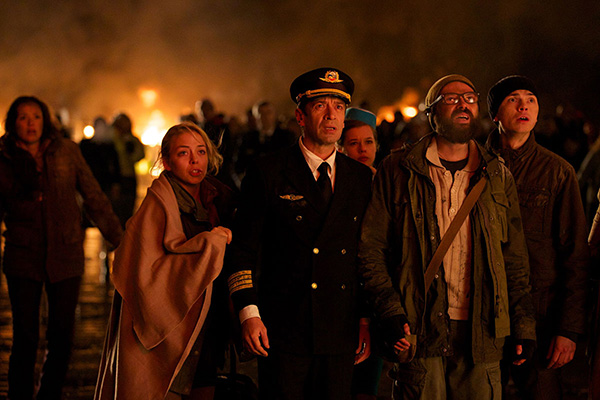 |
|
A scene from The Crew, another heavy-effect Russian blockbuster that opened in China on Friday. [Photo provided to China Daily] |
Lykov has also been bombarded with questions in a similar vein during his promotional tour.
In response to questions from Chinese reporters, he says: "I don't think I was chosen for my body as the director wanted an actor who was not too Slavic or Russian."
Dragon is also unlike older Russian films.
For middle-aged Chinese viewers, their collective memory of Russian movies is mostly of those produced in the former Soviet Union.
With Dragon, where the sets and the beasts are created using digital technology, there is a new appreciation of films from Russia.
As for The Crew, the film only reinforces the new Chinese view that Russian films are finally entering the digital age.
The Crew, a remake of the 1980 classic Air Crew, is about a rescue on a volcanic island.
It cost 1.5 billion Russian roubles ($23 million) to make and received critical acclaim for its special effects.
While the first half of the movie seems a bit slow paced, the second half features impressive action scenes.
For instance, a daredevil pilot uses a cargo basket hanging from a rope to move passengers from another plane into his plane, as the former is running out of fuel.
Commenting on the change in Russian films showcased through the two movies, Zhou Huarong, senior director of content investment at Beijing-based firm Le Vision Pictures, says: "While Russia's film industry may lag China by 15 to 20 years ... the two movies show the development of their craft.
"In some senses, they represent the best of Russian cinema," says Zhou, who earlier paid a visit to Central Partnership, the Russian producer of The Crew.